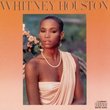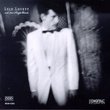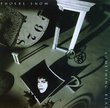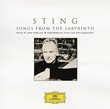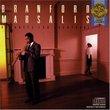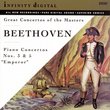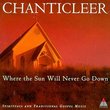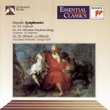| All Artists: Trekel, Robinson, Houston Symphony Title: Zemlinsky: Lyric Symphony; Berg: Three Pieces from the Lyric Suite Members Wishing: 0 Total Copies: 0 Label: Naxos Release Date: 5/26/2009 Genre: Classical Style: Symphonies Number of Discs: 1 SwapaCD Credits: 1 UPC: 747313204878 |
Search - Trekel, Robinson, Houston Symphony :: Zemlinsky: Lyric Symphony; Berg: Three Pieces from the Lyric Suite
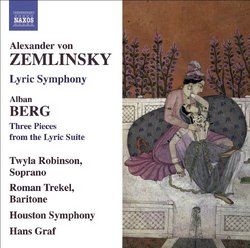 | Trekel, Robinson, Houston Symphony Zemlinsky: Lyric Symphony; Berg: Three Pieces from the Lyric Suite Genre: Classical |
Larger Image |
CD DetailsSimilarly Requested CDs
|
CD ReviewsFine Performances, but No Text for the Song Lyrics George John | Houston, TX United States | 05/20/2009 (4 out of 5 stars) "I bought this CD at a recent Houston Symphony concert, prior to its being available from Amazon. The recording is from Nov 9-11, 2007 -- most likely live (but thankfully, audience noise does not seem to be an issue). The liner notes do NOT include the text of the lyrics. I quote from the notes: "We regret that we are unable to reproduce the sung texts for copyright reasons". Fortunately, we do have the internet. Search for "The Lied and Art Song Texts Page Tagore". On the resulting page search the text for A. Zemlinsky, and click on the [No Title] hyperlink. On that resulting page click on the Lyrische Symphonie hyperlink. You should now see the text of the seven songs in German. All but one have English translations. I would include the direct hyperlink, but Amazon seems to delete them. The complete poems can be found on Project Gutenberg. The title is "The Gardener" by Rabindranath Tagore. The poems used for this work are #5, #7, #30, #29, #48, #51, and #61. Of course, that's a lot of work to get some lyrics. It's a pity they aren't included. But, they are worth tracking down. Tagore is a fine writer. He won the Nobel Prize in Literature in 1913. As for the performances, they are quite good. The Houston Symphony is a world class orchestra, and Hans Graf is a fine conductor. The two soloists are excellent. As for the works themselves, I wasn't familiar with the Zemlinsky. Its style most reminds of late Mahler (The Song of the Earth), and early Schoenberg (Gurre-Lieder). The Berg is an orchestral arrangement of three movements (2, 3, and 4) from the Lyric Suite for string quartet. It uses Schoenberg's twelve tone technique. The reason for the coupling is most likely because Berg quotes from the Zemlinsky, and the work is dedicated to him. For $8.00 this is a bargain, provided you have an interest in the music. That, of course, will be a matter of taste. If you are looking for the Zemlinsky only, an alternative is Eschenbach, Orchestre de Paris; although, it looks like it has been discontinued. You can download a 256K mpeg from Amazon for $9.49. I like both performances. As expected, they are different, and each has its strengths. Being Jewish, Zemlinksy's music was suppressed by the Nazi's. He eventually fled to the United States, and died here. I do think his music deserves a hearing. This is as good a place to start as any, and at a bargain price." Two Lyric Works of the Twentieth Century Robin Friedman | Washington, D.C. United States | 09/24/2009 (4 out of 5 stars) "Alexander von Zemlinsky's (1871 - 1942) Lyric Symphony and Alban Berg's (1885 - 1935) Lyric Suite are related yet highly different 20th Century masterworks dating from the 1920s. This budget-priced Naxos CD offers the opportunity to get to know the symphony and Berg's own arrangement for string orchestra of a portion of his suite performed by the Houston Symphony Orchestra conducted by Hans Graf. Zemlinsky found an early champion in Brahms and he later became a teacher of Schoenberg. He fell in love with Alma Schindler who rejected him in favor of Gustav Mahler. His music has received growing attention in recent years, and the Lyric Symphony (1923) remains his best-known work. The symphony generally looks backwards in that it is in a late romantic idiom with many resemblances to Mahler's song cycles and to Schoenberg's early work, Gurrelieder. It has a perfumed, art nouveau oriental quality. The work is scored for baritone, soprano and large orchestra. It consists of seven movements setting love poems of Rabindranath Tagore in German translation. The symphony tells of the search for love, momentary ecstasy, and loss. The man and woman sing the poems alternately, but never sing together. The orchestral writing varies from large-scale, featuring percussion, cymbals, and brass, to sections with a chamber-music intimacy. After an extended, dramatic orchestral introduction, the baritone opens with a long, declamatory song, "I am restless" about his loneliness and need for love. The soprano responds with a seductive, scherzo-like song in which she confesses to her mother her sexual desire for a young prince. In the third and fourth songs, the man and woman respectively sing of love. But in the fifth song, the man again evidences restlessness and the desire to be free from commitment. The soprano voices resignation to loss in the sixth song. In the final song of the symphony, the man departs in sadness, with the song followed by a lengthy, wandering postlude. Baritone Roman Trekel and Soprano Twyla Robinson give emotional performances of this over-wrought romantic music. Berg was a student of Schoenberg and a friend of Zemlinsky's. A member of the Second Viennese School" with Schoenberg and Webern, Berg was a romantic who wrote, in a modernistic, atonal, style He wrote his six-movement Lyric Suite for string quartet in1925 and 1926 and dedicated it to Zemlinsky. Berg then arranged the second, third, and fourth movement of the string quartet for string orchestra, and the orchestral version is performed on this CD. Zemlinsky's Lyric Symphony speaks of love searched for, found, and lost, and so does Berg's Lyric Suite. Berg wrote the work for a woman named Hanna Fuchs-Robettin, the wife of a friend. Berg was himself married at the time as well. The Lyric Suite is a personal, hermeneutic work, and many scholars have explored its symbolism in depicting Berg's relationship to Fuchs-Robettin. There is also a great deal of musical discussion about the extent to which the Suite is based upon Schoenberg's 12-tone row and about trying to identify the row on which it is based. These discussions, however, are unnecessary to feel the passion and emotive force of this great music. In its astringent, difficult idiom and in its visceral romanticism, the Lyric Suite expresses love in the language of the Twentieth Century. Although Graf's reading of the Suite has been criticized, I came away from this performance deeply moved. The work begins (in this orchestral version) with an extensive love song with many shifts of tempo and character. The short middle movement is a whispering scherzo which surrounds a moment of great calm. The work concludes with a highly emotional declaration of love which reaches a climax in quoting the third movement of Zemlinsky's symphony set to Tagore's words "you are mine own." I liked the Lyric Symphony but the Lyric Suite moved my heart. This CD includes scholarly program notes but does not include song texts for reasons of copyright. Listeners wanting to hear the full string quartet version of Berg's Lyric Suite may wish to explore an excellent budget-priced recording on Naxos, linked below, by the New Zealand String Quartet. Berg: String Quartet; Lyric Suite; Wolf: Italian SerenadeRobin Friedman" Zemlinsky & Berg In Texas Erik North | San Gabriel, CA USA | 09/15/2009 (5 out of 5 stars) "Alexander von Zemlinsky and Alban Berg, both very good friends, were among the numerous Austro-German composers of the early 20th century who followed successfully in the wake of Mahler and Schoenberg. And they were among the fortunate ones, as so many of their fellow composers were to find themselves being literally swallowed up by Hitler's Third Reich and the horrors of the Holocaust. Zemlinsky, in fact, was Schoenberg's brother-in-law and, although successful in both Prague and Berlin, had to emigrate to America. Meanwhile, Berg, a good friend of Zemlinsky and a pupil of Schoenberg, stayed in Vienna and was fortunate enough not to have lived long enough to see what was to happen to Europe. Both composers created some fairly individualistic works that, though overshadowed by their mentors' achievements, eventually attained some cachet among 20th century classical music aficionados. And two of those works are what comprise this recording.
Zemlinsky's 1923 "Lyric Symphony", though described as a symphony, is in truth a seven-part song cycle in the manner of Mahler's song cycles (e.g. "Des Knaben Wunderhorn") and deals in nothing less than the cycle of life itself. Berg's "Lyric Suite", meanwhile, which was dedicated to good friend Zemlinsky but is in fact a tribute to his beloved Hanna Fuchs-Robettin, began as a string quartet in 1927 before the composer assembled the second, third, and fourth movements into a three-part suite for string orchestra on this recording that shows the influence of Schoenberg. Both works, though more than eighty years old now, still sound strikingly new and innovative, but don't necessarily get performed all that much in the concert halls. It is thus a tribute to both the Houston Symphony Orchestra and their current music director Hans Graf that they should choose these two pieces to place on this recording for the low-budget but high-quality Naxos label. Though the liner notes regrettably can't show the texts or English translations for the songs in the Lyric Symphony due to copyright concerns, this doesn't detract from the quality of the performances of vocal soloists Twyla Robinson and Roman Trekel. And the Lyric Suite gets some excellent playing from the string section of the orchestra, making one wonder why it isn't as well known as it should be. Like three of his predecessors in Houston (Leopold Stokowski; Andre Previn; Christoph Eschenbach), Mr. Graf is not afraid to take risks in presenting new and/or unfamiliar music like this alongside the established masterworks. In doing this here, as he had done for the orchestra's Koch recording of Bartok's "The Wooden Prince" and Stravinsky's "The Fairy's Kiss", he has continued the pattern of the Houston Symphony being ranked among the great orchestras of both America and the world in general. This recording comes highly recommended, even without the translations or text for Zemlinsky." |

